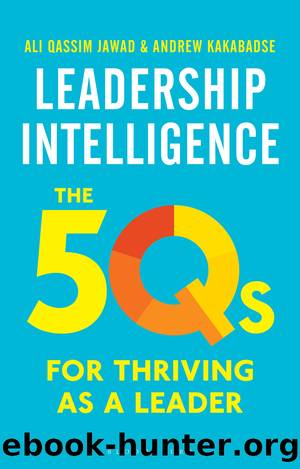Leadership Intelligence by Andrew Kakabadse

Author:Andrew Kakabadse
Language: eng
Format: epub
Publisher: Bloomsbury Publishing
Value delivery through performance
‘We have to build our reputation. It is not just us but the whole country. Foreign investors must have faith in our economy, and so we must address the concerns that all know, but no one dare raise.’
That was Ibrahim, chairman of one of the financial conduct authorities, in a particular Gulf State. Sensitive issue? Bribery and patronage! Of the two, patronage was the greatest threat for building trust with foreign investors.
Government was central to the appointment of the chairman of this authority. Government was also the source of patronage. However, Ibrahim was nobody’s man. In the highly sensitive context of Middle Eastern politics, Ibrahim introduced performance assessment, not only for the staff and management but also for board members. Appointments were to be by merit, and he meant it.
A new wave of highly capable, professional staff and management nurtured a new performance-oriented culture, based on open conversation and feedback. Juniors challenged their seniors constructively.
Government at first seemed somewhat alarmed by the expressions of independence from the authority. However, noticing improvements in performance government took note. So did the chairmen of the banks in that country. For the first time, a wave of prosecutions of bank managers sent the message that the banks would comply with international rules. Pride in being professional, loyalty to the organization and its mission, high levels of engagement and a positive dialogue with all stakeholders became evident.
Of course, Ibrahim had to play the politics of keeping government sweet that of itself was a monumental task. But he did that, and the organization admired their chairman even more. This was a talented man winning against all odds.
Ibrahim’s accomplishments were noticed, and he was appointed minister of state and is now introducing the same reforms in government that he achieved in that authority.
All of the organizations now look to their new chairman. Undoubtedly he is a talented individual, but doubt has crept in as to whether he can handle critical stakeholder relationships and still maintain independence.
One senior manager commented, ‘Yes, clever man, but is he clever enough to outmanoeuvre those sharks out there [he was referring to certain chairpersons of banks]). Ibrahim was not political and straightforward. That is what he was like with us, but so politically brilliant with those out there that they thought he was non-political. My fear with the new chairman is that he will succumb and in doing so, he will not be able to tell us. The situation will be reversed. He will be political with us, but not with those out there! I just wish someone could get to him and tell him what his job is really all about.’
Despite all efforts, certain negotiations do not proceed well. An immovable confrontation looms. One or more parties may have to leave the organization. Making that break requires being ruthless. Yet, many C-suite executives warn that being ruthless and disrespectful leads to the loss of valuable friends. The high performer goes out of his or her way to be
Download
This site does not store any files on its server. We only index and link to content provided by other sites. Please contact the content providers to delete copyright contents if any and email us, we'll remove relevant links or contents immediately.
Hit Refresh by Satya Nadella(9140)
The Compound Effect by Darren Hardy(8975)
Change Your Questions, Change Your Life by Marilee Adams(7786)
Nudge - Improving Decisions about Health, Wealth, and Happiness by Thaler Sunstein(7711)
The Black Swan by Nassim Nicholas Taleb(7136)
Deep Work by Cal Newport(7089)
Rich Dad Poor Dad by Robert T. Kiyosaki(6642)
Daring Greatly by Brene Brown(6518)
Principles: Life and Work by Ray Dalio(6459)
Playing to Win_ How Strategy Really Works by A.G. Lafley & Roger L. Martin(6316)
Man-made Catastrophes and Risk Information Concealment by Dmitry Chernov & Didier Sornette(6022)
Big Magic: Creative Living Beyond Fear by Elizabeth Gilbert(5778)
Digital Minimalism by Cal Newport;(5767)
The Myth of the Strong Leader by Archie Brown(5511)
The Slight Edge by Jeff Olson(5420)
Discipline Equals Freedom by Jocko Willink(5391)
The Motivation Myth by Jeff Haden(5214)
The Laws of Human Nature by Robert Greene(5213)
Stone's Rules by Roger Stone(5089)
